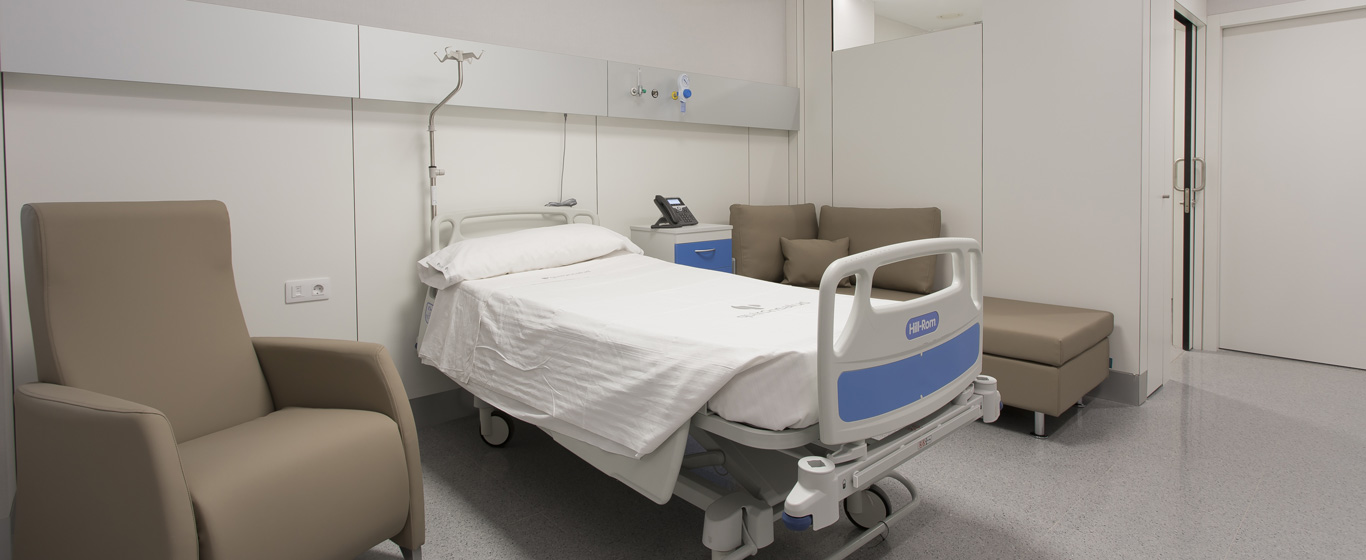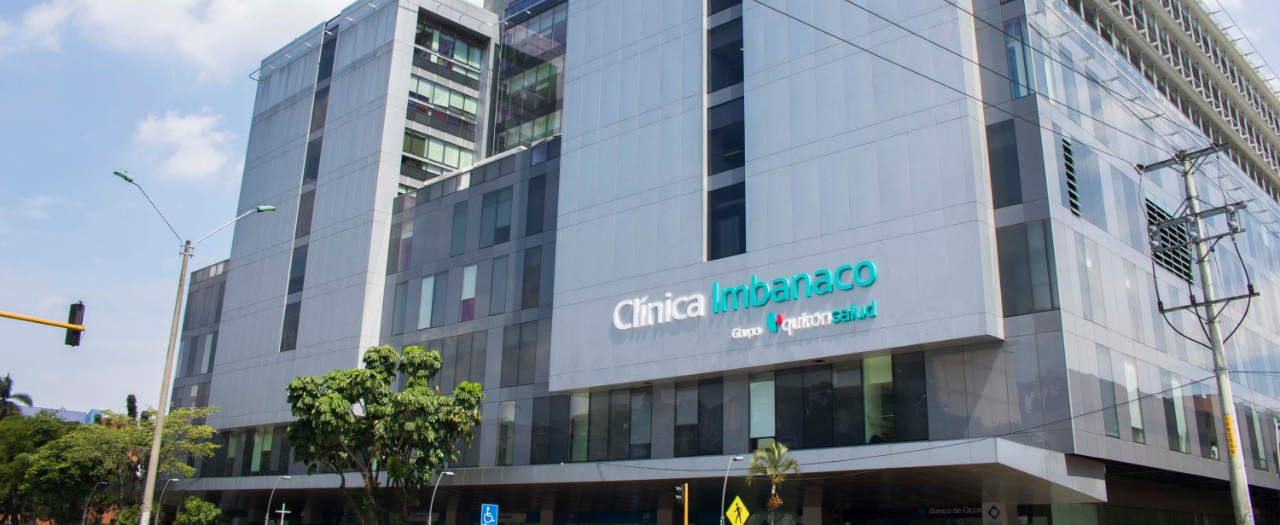Irritable Colon
Information about the causes, symptoms, possible complications, and treatment of irritable bowel syndrome.
Symptoms and Causes
Irritable colon, also known as irritable bowel syndrome (IBS), is characterized by abdominal pain and/or changes in bowel habits (diarrhea or constipation). It is a common condition that affects intestinal function without anatomical or metabolic abnormalities.
Irritable colon is a chronic condition with no definitive cure, so treatments focus on alleviating symptoms and reducing the duration of flare-ups.
Although it usually does not present severe symptoms, irritable colon negatively impacts patients’ quality of life. When a healthy lifestyle is followed and dietary changes are adopted, the prognosis is generally benign.
Symptoms
Irritable colon typically manifests in flare-ups that occur periodically and last several days, although some symptoms may persist for weeks. The most common signs of irritable bowel syndrome are:
- Pain in the lower abdomen, often colicky in nature. It is usually moderate discomfort that eases after defecation.
- Abdominal bloating.
- Flatulence: accumulation of gas in the intestines.
- Changes in bowel habits: constipation or diarrhea, increased frequency of bowel movements.
- Changes in stool consistency.
- Nausea and vomiting.
- Early satiety: feeling full after eating small amounts of food.
- Heartburn: gastric acidity caused by the reflux of stomach acids into the esophagus.
- Incomplete evacuation: the bowel does not fully empty after defecation.
- Mucus in the stool.
Hormones play a significant role in irritable colon symptoms, which are often more pronounced in women because estrogen and progesterone affect intestinal transit and increase pain perception. In contrast, male testosterone tends to make symptoms milder in men.
Causes
There is no single, specific cause of irritable colon. Factors influencing its development include:
- Changes in intestinal motility: the muscles lining the intestines move food through the digestive tract. If this process is disrupted:
- Faster-than-normal movements: cause gas, bloating, and diarrhea.
- Slower-than-normal movements: cause constipation and hard stools.
- Nervous system abnormalities that interfere with communication between the brain and the digestive system.
- Infections due to bacterial overgrowth.
- Changes in gut microbiota: disruption of the balance between naturally occurring bacteria, viruses, and fungi in the intestines.
Risk Factors
The risk of developing irritable bowel syndrome increases in the following cases:
- Female sex
- Under 50 years old
- Family history
- Hormonal changes
- Genetic predisposition
- Infectious gastric diseases, such as gastroenteritis
- Functional dyspepsia: a digestive disorder characterized by persistent stomach discomfort
- Dysmenorrhea: painful menstruation
- Bulimia
- Stress
- Anxiety
- Consumption of gas-producing foods
Complications
The most frequent complications of irritable colon are:
- Hemorrhoids, resulting from chronic diarrhea or constipation
- Mood changes
- Depression
- Social isolation
Prevention
Irritable bowel syndrome cannot be prevented, but the following habits may delay flare-ups and reduce symptoms:
- Eat slowly
- Chew food thoroughly before swallowing
- Drink around two liters of water per day
- Avoid heavy meals
- Limit consumption of alcohol, dairy, processed foods, spices, or gas-producing foods. Each patient should avoid foods that trigger flare-ups in their body.
- Increase fiber intake
- Engage in moderate daily exercise
- Maintain a regular meal schedule
- Manage stress
Which doctor treats irritable bowel syndrome?
Digestive system specialists, general surgeons, and internal medicine physicians diagnose and treat irritable colon. Nutritional specialists, psychologists, and family doctors may also be involved in treatment.
Diagnosis
There is no specific test to detect irritable bowel syndrome, so diagnosis is based on clinical evaluation and ruling out other conditions.
Medical history is essential. In addition to reviewing the patient’s personal and family medical history, the specialist may request a detailed diary of discomfort, bowel movement frequency, and stool consistency to monitor symptom progression over several weeks or months.
To rule out other diseases with similar symptoms, the following tests are usually performed:
- General and specific blood, urine, and stool tests
- Breath test: detects Helicobacter pylori infection or bacterial overgrowth
- Allergy or intolerance tests: determine which nutrients the digestive system cannot process properly
- Colonoscopy: examines the inside of the colon with a camera inserted through the anus to detect polyps, ulcers, inflammation, or cancerous tumors
- Computed tomography (CT) scan: evaluates the abdomen and pelvic structures. It aids in diagnosing Crohn’s disease, diverticulitis, and stomach or colon cancer, as well as identifying obstructions or structural anomalies
- Biopsy: a flexible tube is inserted through the mouth to the stomach, where a tissue sample is taken for laboratory analysis. This procedure is used to detect celiac disease, ulcerative colitis, or Crohn’s disease
Treatment
Treatment for irritable colon focuses on lifestyle changes aimed at alleviating symptoms and improving patient quality of life. The same recommendations described above for delaying flare-ups apply.
The most recommended foods for patients with irritable bowel syndrome, though it may vary individually, include:
- Cooked vegetables that do not cause gas (carrot, zucchini, spinach)
- Fish rich in omega-3 fatty acids (salmon, sardines, tuna)
- Extra virgin olive oil
- Ginger
- Easily digestible fruits (apple, ripe banana, watermelon)
- Fiber-rich cereals (brown rice, oats, quinoa)
- Easily digestible proteins (chicken, turkey, eggs)
When symptoms are severe, medications may be administered for a limited time. Typically effective options include antispasmodics, prokinetics, antidiarrheals, laxatives, antidepressants, or anxiolytics. Meditation and psychotherapy are recommended to manage stress.






































































































